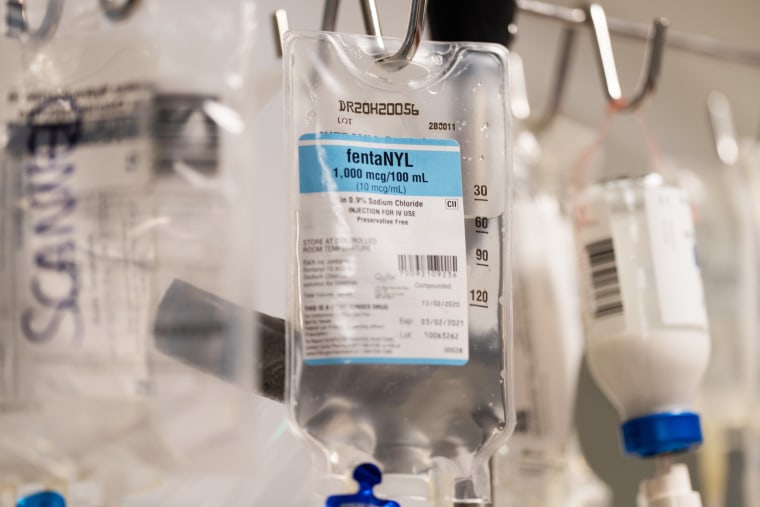WASHINGTON — President Joe Biden signed legislation Tuesday extending a ban on addictive fentanyl-like substances into October, which comes two days before the previous ban was set to expire.
Under the extension of the order, these fentanyl analogues are classified by the federal government as a schedule I drug and are subject to the strictest controls like heroin.
Fentanyl analogues are powerful synthetic opioids that are meant to have the same effect of the original drug, which according to the National Institute on Drug Abuse “is similar to morphine but is 50 to 100 times more potent.”
Fentanyl is usually given to people who suffer from severe pain or following a surgery.
Some Republicans have called for making the ban on the fentanyl analogues permanent but civil rights groups have opposed the bans. A recent Government Accountability Office study found, “Civil rights and criminal justice stakeholders cited concerns that classwide scheduling could result in convictions for substances that may not be harmful and lengthy sentences for trace amounts of fentanyl-related substances and exacerbate racial disparities in federal sentencing.”
The Centers for Disease Control and Prevention says that synthetic opioids are the main source of overdose deaths. Preliminary data released by the CDC last month found that in the 12-month period ending in September 2020, about 90,000 people died from drug overdoses in the U.S. That was up from 68,700 drug overdose deaths during the same time period the previous year.
In the 12-month period that ended July 2020, there were more than 50,000 deaths involving synthetic opioids in the U.S.
Biden proposed during his presidential campaign stemming the movement of illicit drugs like fentanyl, including from China and Mexico. His plan, for example, included making fentanyl a top priority in the U.S.’s dealings with China and to work with Mexican authorities to stop the flow of fentanyl and heroin across the U.S.-Mexico border.

